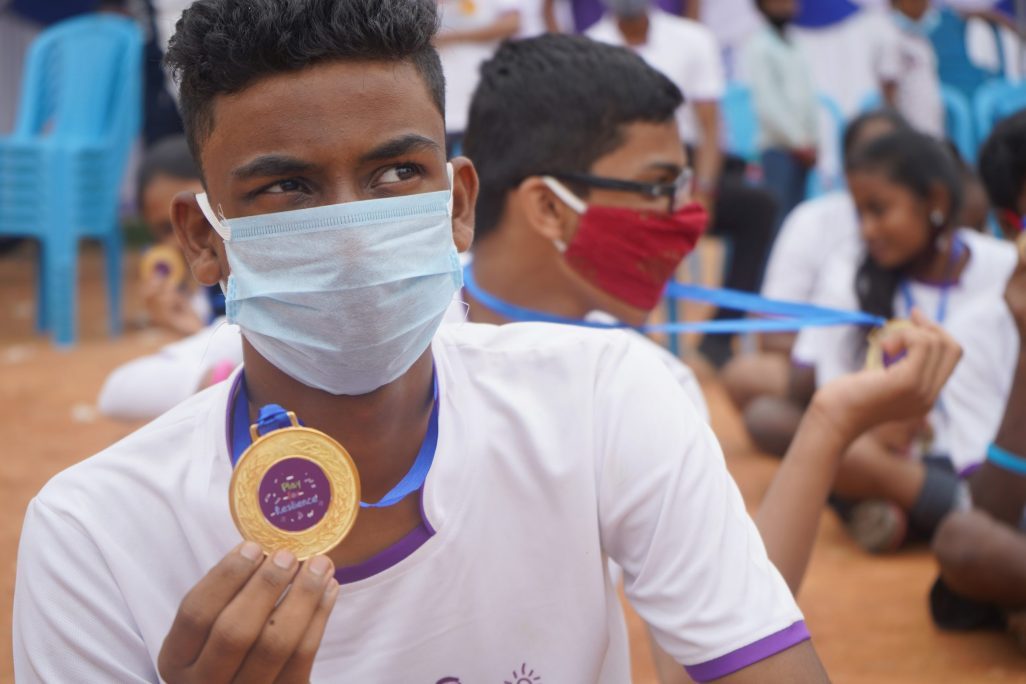Growing up, I have always wanted to have one or another superpower of some Superhero. Be it Wonder woman’s prodigious strength and speed, Superman’s ability to fly or Spiderman’s agility and the list goes on and on. These superhuman abilities made sense to me prior to COVID times but after COVID, they seem irrelevant! Today when I read the news headlines of schools closing again, of lockdowns, of COVID waves that has affected the school system vastly. I realize that students across the planet have been through dynamic changes and shifts. From learning in the presence of their Teacher and classmates to learning through a virtual medium. The reopening and yet again closing of schools, while ensured the continuation of education but also meant that there were far few discussions around the trauma or challenges faced by the students during the pandemic and its aftermath. In some cases, students didn’t even get to go back to schools due to family responsibilities etc. Amongst all these scenarios, there were skills that helped students and everyone around to deal with their challenging emotions better. These skills help develop a characteristic called Resilience.
Resilience is typically defined as the capacity to recover from difficult life events. The American Psychological Association (2014) defines resilience as “the process of adapting well in the face of adversity, trauma, tragedy, threats or even significant sources of stress”. In addition, our response to stress and trauma takes place in the context of interactions with other human beings, available resources, specific cultures and religions, organizations, communities and societies (Sherrieb, Norris, & Galea, (2010); Walsh, (2006)). Each of the above-mentioned context may be more or less resilient in their own right and therefore, more or less capable of supporting the individual. Dr Catherine Panter-Brick defines resilience as a process to harness resources to sustain well-being (Panter-Brick & Leckman, (2013)). She uses the word “process” because it implies that resilience is not just an attribute or even a capacity, phrase “to harness resources” because it asks us to identify what are the most relevant resources to people in places like Afghanistan, Nigeria, or the United States and the expression “sustained well-being” because resilience involves more than just a narrow definition of health or the absence of pathology. The more we learn about resilience, the more we understand its importance and more need to integrate it into our education system!
I have been working with Dream a Dream for over 1.5 year now and being an employee who joined during the pandemic, my experiences and insights from the field have reflected resilience in young people even during COVID times! Dream a Dream’s Life skills development programme has been working to empower young people with life skills for over 21 years now.
I remember what Neha P, a young person who attended Dream a Dream’s online Life Skill Development Programme shared about how the programme helped her. Neha shared that, “With the lockdown, I have been anxious about my future and my family. The online life skills sessions I attended at Career Connect gave me a sense of relief and helped me take a break from what was happening in the outside world. This program motivated me a lot. It made us believe in our self and thinking positively, it helped us in managing the situations like the lockdowns improving our self-confidence.
Another young people with whom I interacted was Sharanya, who is an 18-year old who has had a very troubled childhood. Her father walked out of the family when she was just 3 years old. She was brought up with very little resources by a single mother who made a living as a house help. Sharanya joined Dream a Dream and was part of many programmes. She was eager to learn and develop her skills. Through Life skill development programme, Sharanya was able to build resilience and fight back the helplessness she felt. She shared, “Dream a Dream build in me the courage to stand up to my family and reject marriage proposals; it helped me into being a strong and independent woman. Here, I was able to transform from a girl to a woman ready to take the responsibility of my family. Dream a Dream has turned me into a fighter!”
We have been working to empower young people overcome adversity through Life skills. Dream a Dream’s After School Life skills Programme and Career Connect Programme impacts 10000 young person every year through direct intervention. By integrating creative arts and sports practices, these programmes enable participants to face challenges with more courage, flexibility, creativity, and power.
The need of resilience is more than ever now. As educators, parents, mentors of our children and young adults, we might wish and want that young people should not being going through difficult situations ever. However, the fact is that the future is unforeseen and unsure. The only way to ensure that our children and young adults live life fully while experiencing it, is to equip them with resources and tools that shall not only support them through difficult experiences but also aid in living a fulfilling life. And building resilience is definitely one way to do so!
Just like Dieter F. Uchtdorf said, “Its’s your reaction to adversity, not adversity itself that determines how your life’s story will develop.”
Resilience then, is thus a superpower and we are all indeed superheroes!
Simrat Kaur is Anchor, Strategic Partnerships (Uttarakhand) with Dream a Dream


